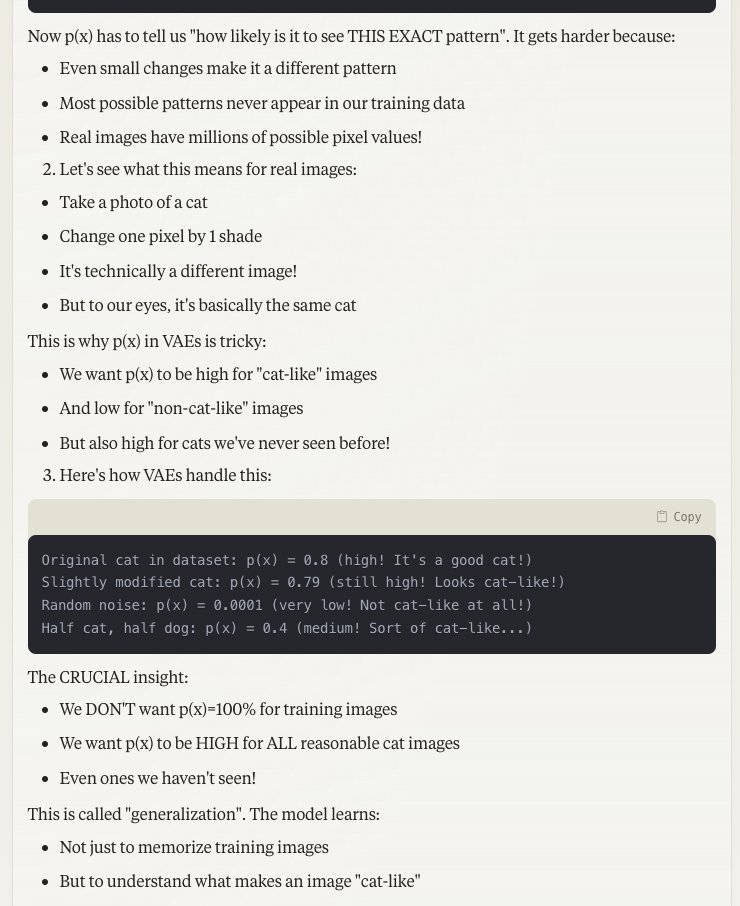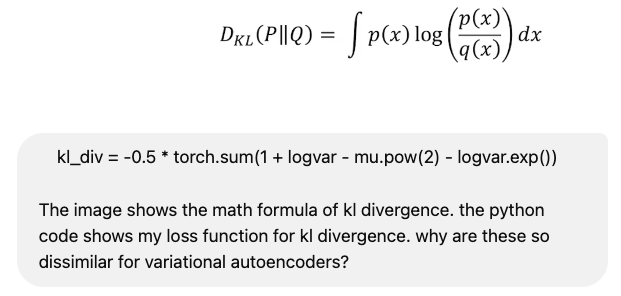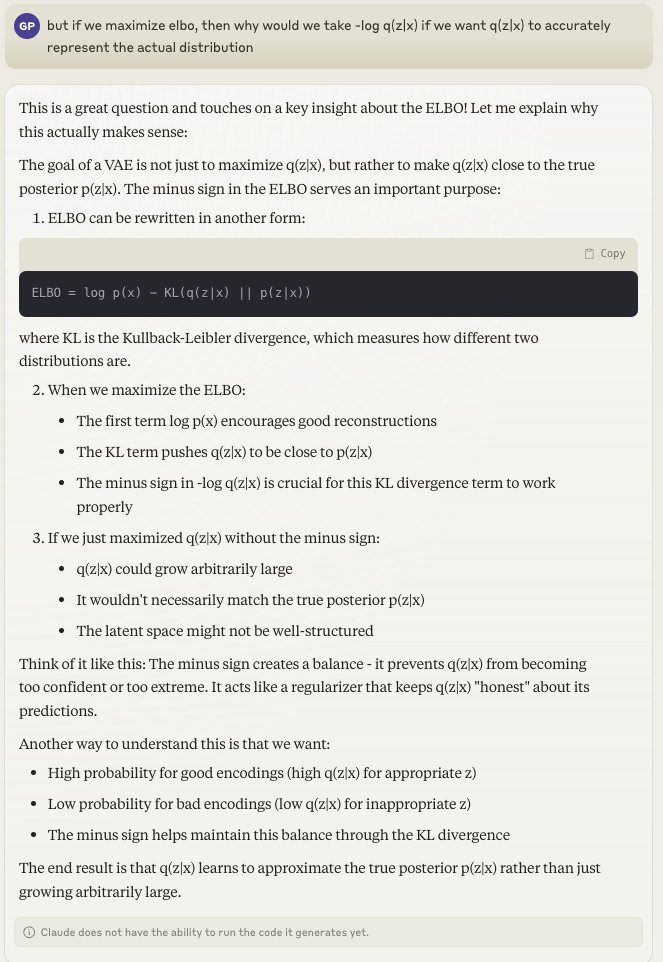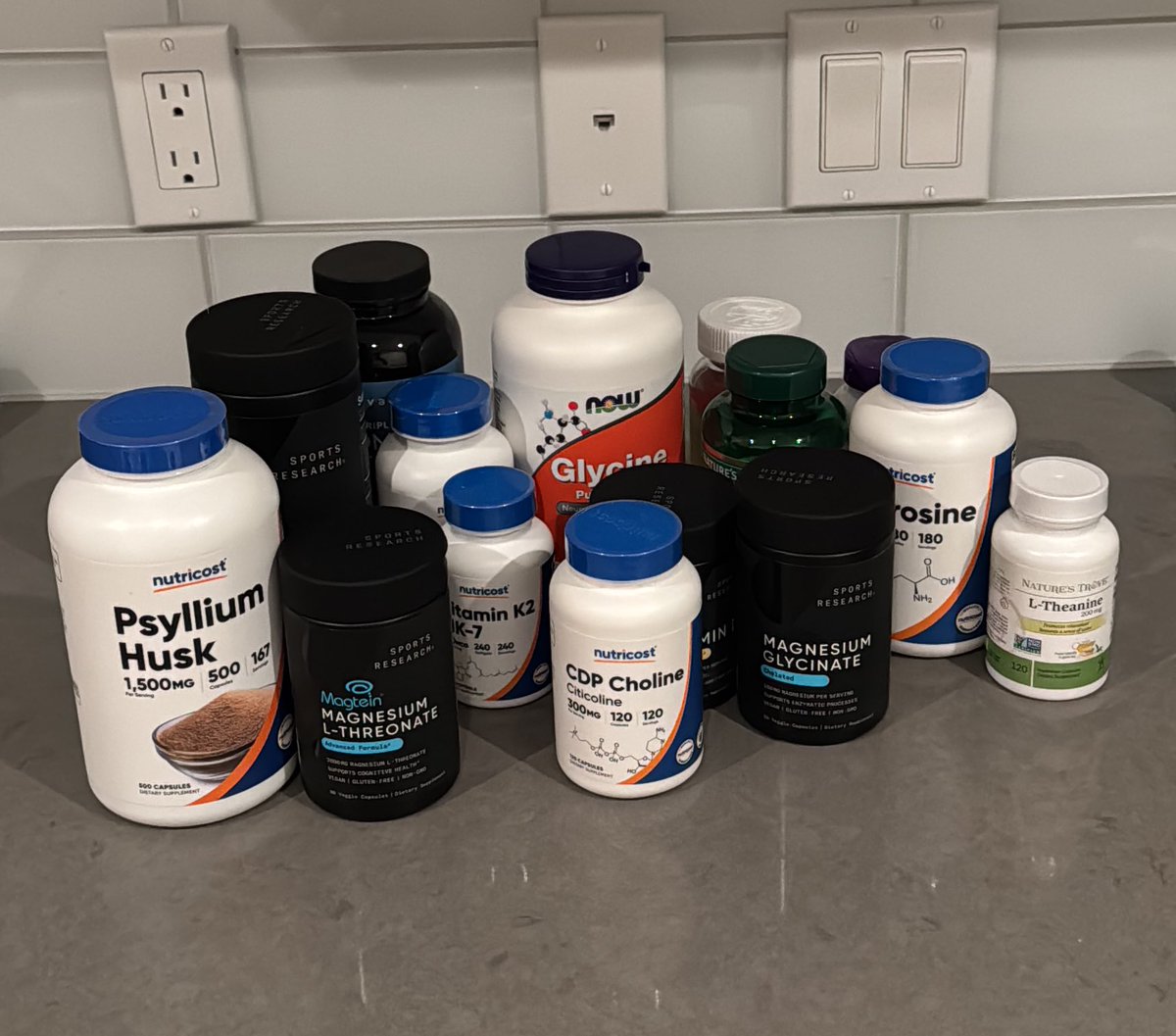universities don't have monopoly on foundational knowledge anymore, here is how i learned all the math intuitions behind diffusion models as a high school dropout with with claude:
https://twitter.com/GabrielPeterss4/status/1861609467156246774
since i dropped out of high school, i had 0 knowledge of probabilities or mathematical notations, claude helped me understand those. here it taught me what p(x) of a variational auto encoder is, but i had to have like 10 more chats to really understand cause i'm dumb: 





think of it like knowledge gap filling - make sure you intuitively understand literally everything you read. i probably asked 500 questions per day, and often 4 follow ups per topic to really understand the _intuition_ behind. here is a dump of random questions: 







1) look at videos / read papers
2) ask o1/claude about every single thing you don't understand
3) ask follow ups, "what is the intution behind the math formula you just gave me", "why is theta there"
4) write down your intution and ask llm if it's correct
5) go one step deeper
2) ask o1/claude about every single thing you don't understand
3) ask follow ups, "what is the intution behind the math formula you just gave me", "why is theta there"
4) write down your intution and ask llm if it's correct
5) go one step deeper
"you need to learn broad random things if you wanna learn fundamentals" is no longer true. if you go one layer deeper into the foundations for each question you have, you can just do fun things like implementing diffusion, AND learn the intuitions
it's actually really hard to internalize how to ask LLMs questions. for some reason we don't ask follow ups, we don't tell it to explain in a simpler way, we don't ask it to confirm our beliefs, and we don't ask it to explain like i'm 12. communicate with like a person!
• • •
Missing some Tweet in this thread? You can try to
force a refresh










